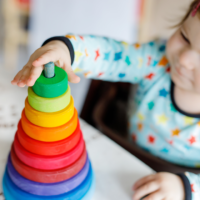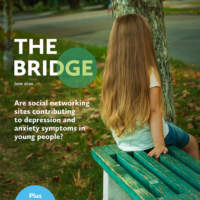Aetiology
-

City living and psychosis: Unpicking an old question using new data
Decades of research point towards a role of urban upbringing in mental health problems, particularly psychosis. Leading theories often refer to the “stress of the city” as a driving factor. Developments in fields spanning geography to genetics call for renewed attention on the topic.
Read more -

Is brain circuitry linked with early symptoms of autism spectrum disorder?
Researchers in San Diego, USA, have studied the relationship between brain network connectivity and emerging autism spectrum disorder (ASD) symptoms in toddlers aged 17-45 months with (n=24) or without (n=23) ASD.
Read more -

Is formal processing through the juvenile justice system linked with an increased risk of reoffending?
Data from a new study published in the Journal of Child Psychology and Psychiatry support that formally processing adolescents through the juvenile justice system after their first arrest for a mild-to-moderate crime is linked with an increased risk of reoffending.
Read more -

Online self-harm content might provide peer support to young people
Youth today find themselves living in an era of social media, with easy access to a wide range of social networking sites. Unfortunately, emerging evidence suggests that some social technologies might cause more harm than good to some young people’s mental health.1,2
Read more -

Nigerian young people from parentally deprived backgrounds show enhanced working memory capacity
Early adverse rearing can impair cognitive functions in all domains.1 However, those who take an evolutionary–developmental stance propose that there could be adaptive benefits associated with early adverse rearing.2,3
Read more -

JCPP Editorial: Volume 61, Issue 09, September 2020
“Something special – the scientific challenges of rare risks” by Albertine J. Oldehinkel
Read more -

June 2020 – The Bridge
Includes ‘Are social networking sites contributing to depression and anxiety symptoms in young people?’
Read more -

“What young people think matters; a qualitative approach to the study of protective factors for mental well-being”
This blog shares findings from a new study comprising of two parts. Part one outlines a typology of profiles of adolescent reported protective factors in relation to mental well-being and the risk of mental disorder, using qualitative data. Part two applied the typology to identify trajectories of change in type membership occurring over one year, based on adolescent reports.
Read more -

JCPP Editorial: Volume 61, Issue 06, June 2020
“Some roads less travelled—different routes to understanding the causes of child psychopathology” By Arne Lervåg
Read more -

In Conversation… Mia Eisenstadt
Mia Eisenstadt discusses her current research on the stressors, risk and protective factors for mental health and wellbeing, how research informs mental health interventions and the important role of self care during the COVID-19 lockdown.
Read more